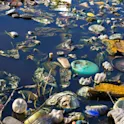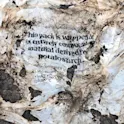Machine learning helps researchers separate compostable from conventional plastic waste with ‘very high’ accuracy
By Deborah Pirchner, Frontiers science writer Image: Shutterstock.com Compostable plastics are on the rise. Despite their merits, these products, including wrappers and packaging, can contaminate conventional plastic waste in the recycling process. Now, scientists used highly sensitive imaging techniques and developed machine learning methods that can identify compostable plastics among conventional types. Disposable plastics are everywhere: Food containers, coffee cups, plastic bags. Some of these plastics, called compostable plastics, can be engineered to biodegrade under controlled conditions. However, they often look identical to conventional plastics, get recycled incorrectly and, as a result, contaminate plastic waste streams and reduce recycling efficiency. Similarly, recyclable plastics are often mistaken for compostable ones, resulting in polluted compost. Researchers at University College London (UCL) have published a paper in Frontiers in Sustainability in which they used machine learning to automatically sort different types of compostable and biodegradable plastics and differentiate them from conventional plastics. “The accuracy is very high and allows the technique to be feasibly used in industrial recycling and composting facilities in the future,” said Prof Mark Miodownik, corresponding author of the study. Up to perfect accuracy The researchers worked with different types of plastics measuring between 50mm by 50mm and 5mm by 5mm. […]


